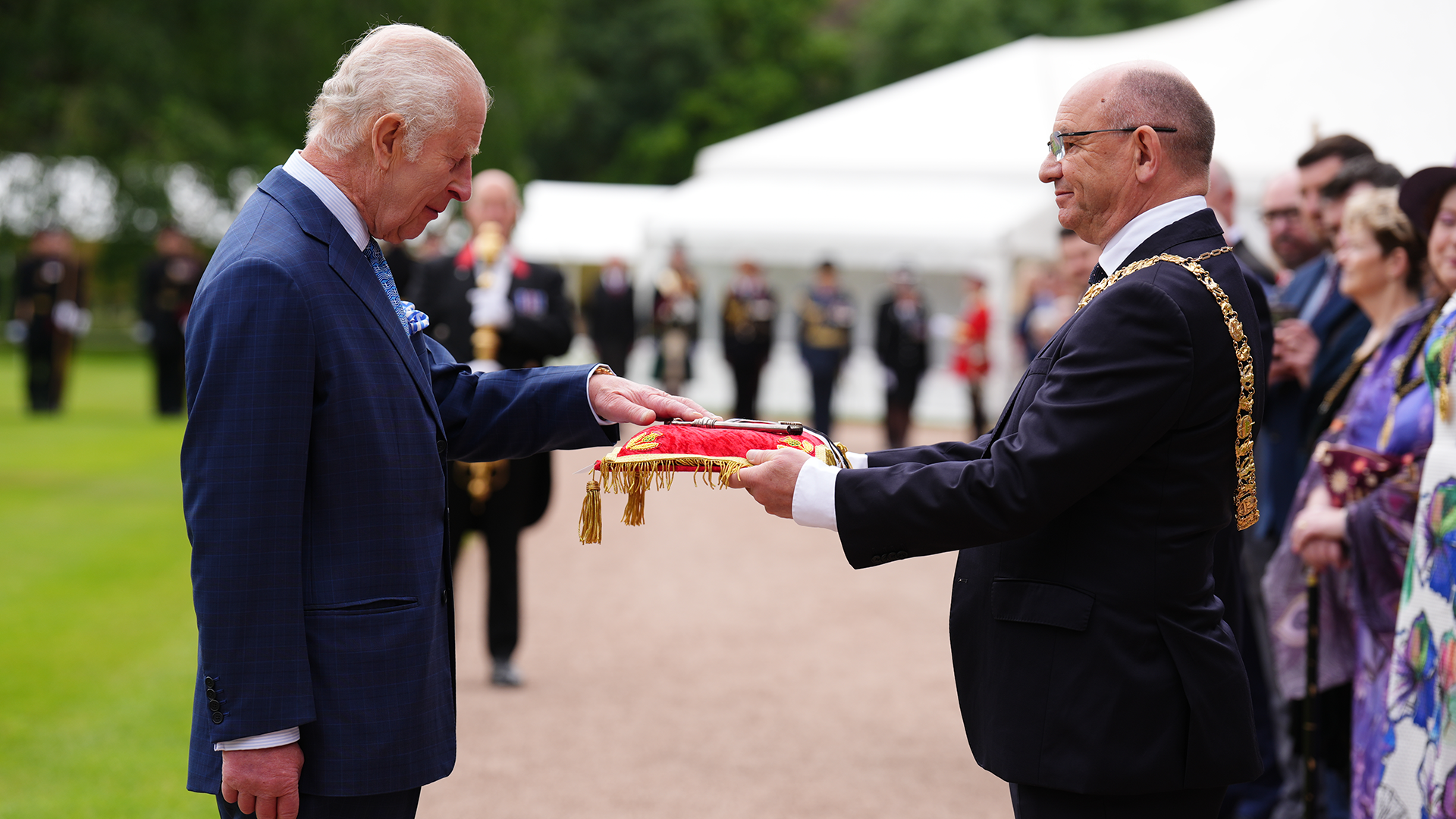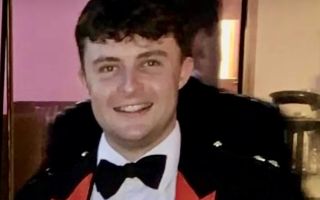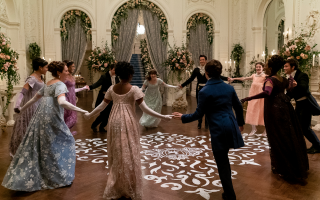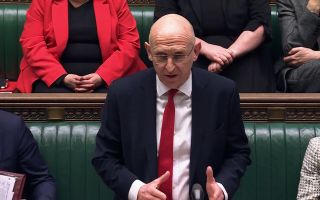Royal Regiment of Scotland welcomes King Charles to Edinburgh for Royal Week
The Royal Regiment of Scotland has welcomed the King to Edinburgh for the traditional Ceremony of the Keys.
The event marks the beginning of Royal Week in Scotland – where Charles will undertake a series of engagements.
The Band of the Royal Regiment of Scotland and the Pipes and Drums of 2 Scots played in the grounds of the Palace of Holyroodhouse as soldiers from Balaklava Company formed a Guard of Honour.
- Historic Ceremony of the Keys at Holyroodhouse starts Royal Week with tradition and splendour
- Guardsman brings his D-Day veteran grandfather's bagpipes back to the beaches
- Agile and versatile: Army's 1st Division takes on key role in new Nato force
The Ceremony of the Keys is the first engagement of Royal Week in Scotland.
As is tradition, King Charles was offered the keys to the city by Lord Provost Robert Aldridge, with the monarch then returning them to the Lord Provost for safekeeping.
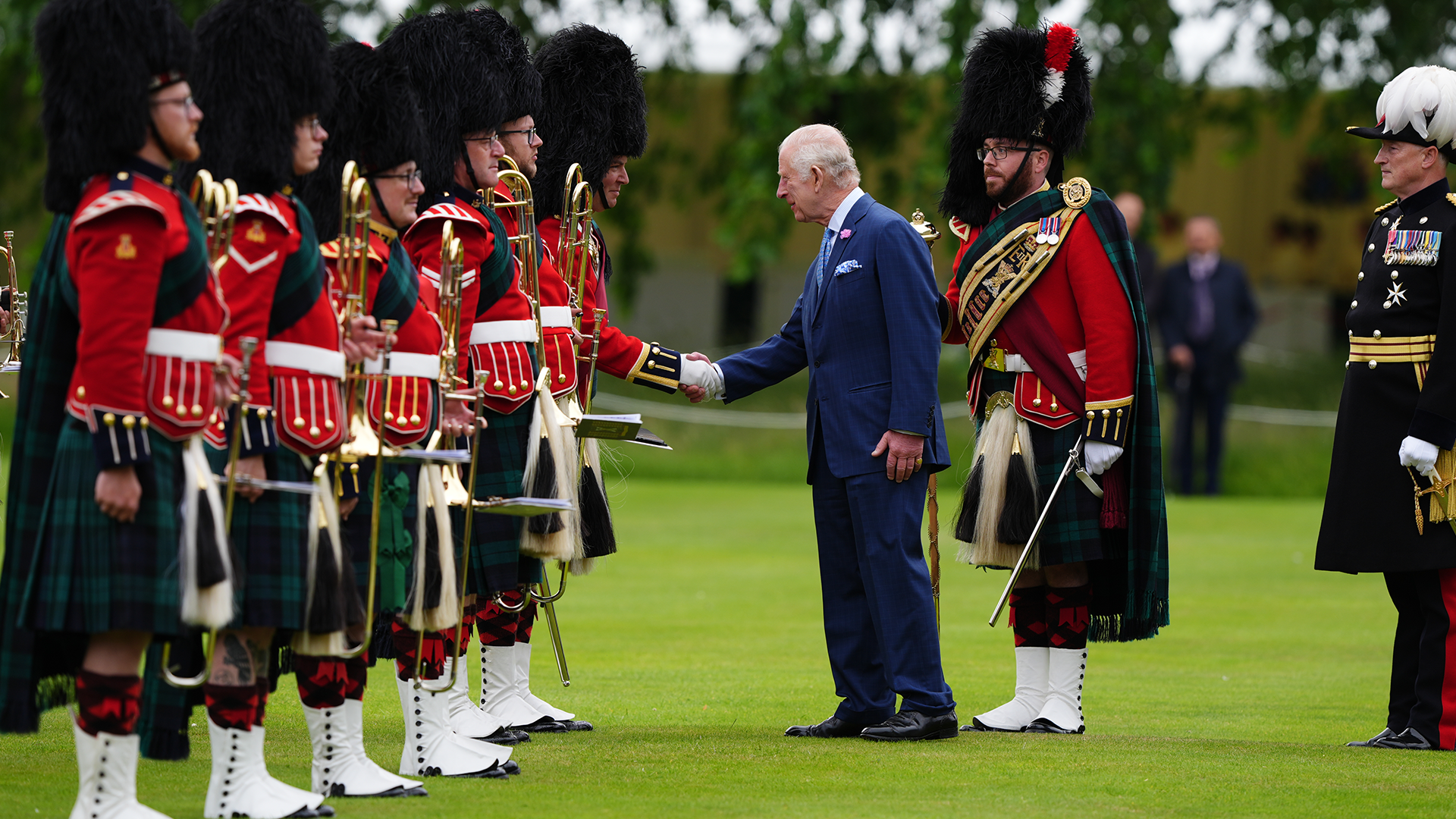
Mr Aldridge told the King, after he arrived by helicopter with the Queen: "We, the Lord Provost and members of the City of Edinburgh Council, welcome Your Majesty to the capital city of your ancient and hereditary kingdom of Scotland and offer for your gracious acceptance the keys of Your Majesty’s good City of Edinburgh."
Charles gave the traditional reply: "I return these keys perfectly convinced that they cannot be placed in better hands than those of the Lord Provost and councillors of my good City of Edinburgh."
The King then inspected the guard of honour.
Troops from Balaklava Company in full ceremonial dress lined up in two rows facing the palace flanked by the regimental band and pipes and drums.
Also lined up were the Royal Company of Archers, who serve as the sovereign's ceremonial bodyguard for Scotland – a role first created in 1822 for King George VI.
This year's Royal Week, which is also known as Holyrood Week, is shorter than in previous years because the General Election meant the Royal Family postponed any engagements "which may appear to divert attention or distract from the election campaign".
